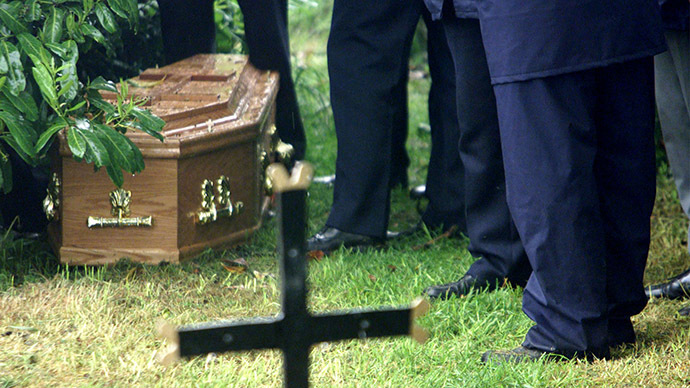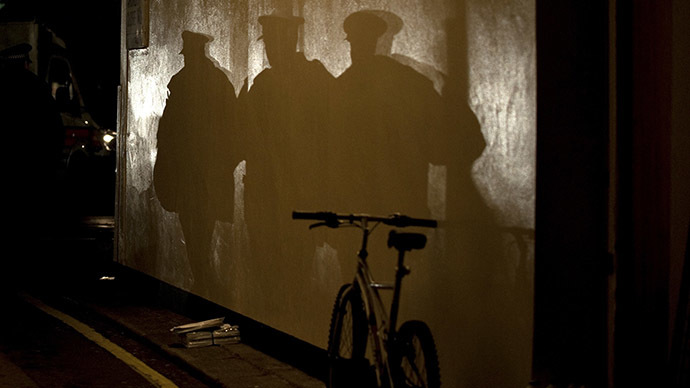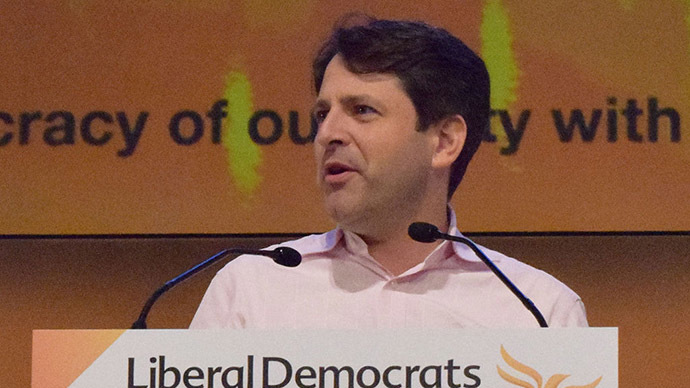Dead newborn’s identity stolen by UK police to spy on protesters

Undercover police in an elite unit tasked with infiltrating left-wing groups stole a dead newborn child’s identity, the Metropolitan Police Service has confirmed.
The baby is among a number of children whose identities were stolen by the Met’s covert Special Demonstration Squad.
Other children aged one, four, 14, 16 and 17 were also harvested for their details to provide police covers.
Only the ages of the children have been released to ensure the identities of the officers are not compromised.
Liberal Democrat MP for Chippenham, Duncan Hames, who procured the information following repeated Freedom of Information (FoI) requests, hoped to console a constituent who feared his 15-year-old daughter’s identity might have been stolen.
While no 15-year-olds were identified, it has taken Hames nearly two years since February 2013 to obtain the children’s ages.

The Metropolitan Police used “every means possible” to try and obstruct the release of the information, he told VICE news.
“Our experience over the last two years has been that they have taken every opportunity they could to resist sharing even the slightest bit of information about these activities,” Hames said.
The Met police were hoping he would “grow tired and go away,” he added, calling the delay a travesty of how “Freedom of Information is supposed to work.”
The Met secretly authorized the theft of identities from dead children for three decades, whilst issuing covert officers with fake passports and empowering them to infiltrate protest groups, without the knowledge of bereaved parents.
The practise was uncovered in 2013 following an investigation by the Guardian, which discovered police officers had searched national birth and death records over generations for the right matches.
“Instead of engaging with this totally natural desire for parents to know whether or not someone has been masquerading as their children, the police clammed up and weren't prepared to release even the [sic] modest amount of information,” said Hames.
The dispute only ended when the Met abandoned its appeal against a ruling to publish the figures last August by the Information Commissioner, the watchdog for Freedom of Information requests.
“They realized their obstruction was indefensible,” Hames said.
He further accused the police of “feet dragging” when he raised the issue with Home Secretary Theresa May in Parliament on Monday.

Nigel Shankster, the Met's senior information manager, wrote in its final response to Hames: “The Metropolitan Police Service (MPS) believes it pertinent to mention that it has been recognized by the Police Service — and the MPS in particular — that the tactic of using the identity of a deceased child to form a legend for undercover police officers may be viewed by some as 'morally repugnant' and that it is no longer police practice.”
The activity of using the identities of deceased children for undercover police operations is no longer allowed. It was, however, widespread according to an internal investigation by Derbyshire Chief Constable Mick Creedon, who also examined claims that some officers were involved in inappropriate sexual relationships while under alias.
Creedon found that out of 106 names adopted by the squad between 1968 and 2008, 42 can be treated as highly likely to have come from dead children.
Hames told VICE News he felt the police were still not willing to “address the anxieties” of parents who had lost their children.
He said he “knows that there are other parents out there who have already been through a terrible experience who are now worried, and who are searching the internet to see if there are any signs that someone is going by their dead child's identity.”
As a result, he has called on the police to establish a procedure by which concerned parents can confirm that their deceased child’s identity was not stolen.
“I really think that the Met police need to look again as to whether there is any process they can establish whereby they could reassure parents.”
“I'm convinced there is more the police can do to put more parents' minds at rest,” he added.












